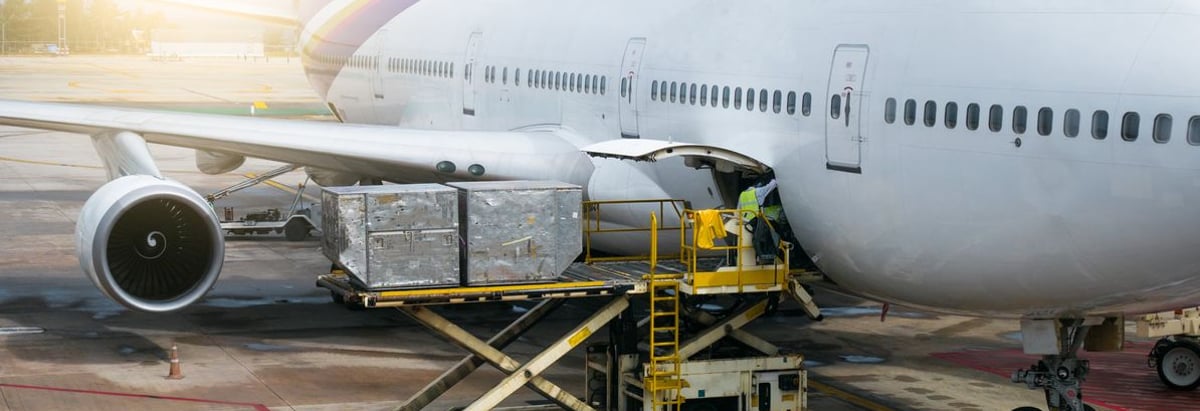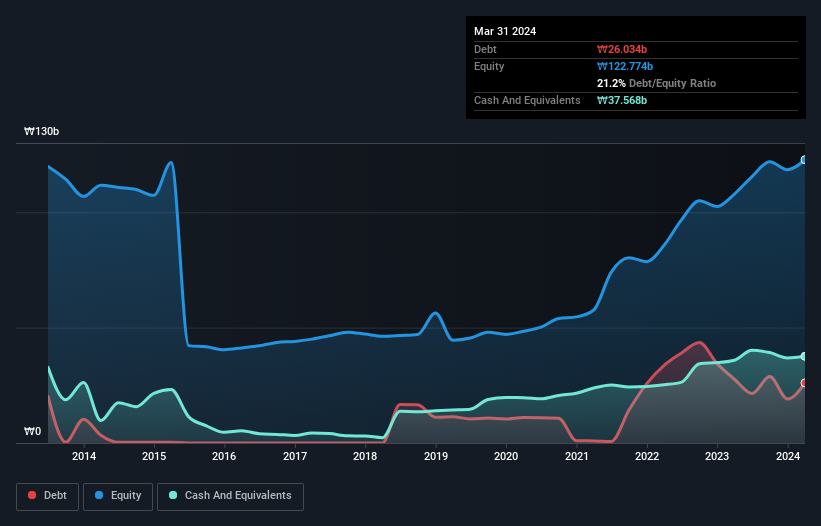
The external fund manager backed by Berkshire Hathaway's Charlie Munger, Li Lu, makes no bones about it when he says 'The biggest investment risk is not the volatility of prices, but whether you will suffer a permanent loss of capital.' So it might be obvious that you need to consider debt, when you think about how risky any given stock is, because too much debt can sink a company. We can see that Hansol Logistics Co., Ltd. (KRX:009180) does use debt in its business. But the more important question is: how much risk is that debt creating?
What Risk Does Debt Bring?
Debt and other liabilities become risky for a business when it cannot easily fulfill those obligations, either with free cash flow or by raising capital at an attractive price. In the worst case scenario, a company can go bankrupt if it cannot pay its creditors. However, a more frequent (but still costly) occurrence is where a company must issue shares at bargain-basement prices, permanently diluting shareholders, just to shore up its balance sheet. Of course, debt can be an important tool in businesses, particularly capital heavy businesses. The first thing to do when considering how much debt a business uses is to look at its cash and debt together.
Check out our latest analysis for Hansol Logistics
What Is Hansol Logistics's Debt?
As you can see below, Hansol Logistics had ₩26.0b of debt at March 2024, down from ₩27.6b a year prior. But on the other hand it also has ₩37.6b in cash, leading to a ₩11.5b net cash position.

How Healthy Is Hansol Logistics' Balance Sheet?
The latest balance sheet data shows that Hansol Logistics had liabilities of ₩129.6b due within a year, and liabilities of ₩24.3b falling due after that. Offsetting this, it had ₩37.6b in cash and ₩127.5b in receivables that were due within 12 months. So it actually has ₩11.1b more liquid assets than total liabilities.
This short term liquidity is a sign that Hansol Logistics could probably pay off its debt with ease, as its balance sheet is far from stretched. Simply put, the fact that Hansol Logistics has more cash than debt is arguably a good indication that it can manage its debt safely.
In fact Hansol Logistics's saving grace is its low debt levels, because its EBIT has tanked 22% in the last twelve months. Falling earnings (if the trend continues) could eventually make even modest debt quite risky. When analysing debt levels, the balance sheet is the obvious place to start. But you can't view debt in total isolation; since Hansol Logistics will need earnings to service that debt. So if you're keen to discover more about its earnings, it might be worth checking out this graph of its long term earnings trend.
Finally, a business needs free cash flow to pay off debt; accounting profits just don't cut it. While Hansol Logistics has net cash on its balance sheet, it's still worth taking a look at its ability to convert earnings before interest and tax (EBIT) to free cash flow, to help us understand how quickly it is building (or eroding) that cash balance. Over the most recent three years, Hansol Logistics recorded free cash flow worth 66% of its EBIT, which is around normal, given free cash flow excludes interest and tax. This cold hard cash means it can reduce its debt when it wants to.
Summing Up
While we empathize with investors who find debt concerning, you should keep in mind that Hansol Logistics has net cash of ₩11.5b, as well as more liquid assets than liabilities. The cherry on top was that in converted 66% of that EBIT to free cash flow, bringing in ₩22b. So we are not troubled with Hansol Logistics's debt use. The balance sheet is clearly the area to focus on when you are analysing debt. But ultimately, every company can contain risks that exist outside of the balance sheet. We've identified 3 warning signs with Hansol Logistics , and understanding them should be part of your investment process.
At the end of the day, it's often better to focus on companies that are free from net debt. You can access our special list of such companies (all with a track record of profit growth). It's free.
If you're looking to trade Hansol Logistics, open an account with the lowest-cost platform trusted by professionals, Interactive Brokers.
With clients in over 200 countries and territories, and access to 160 markets, IBKR lets you trade stocks, options, futures, forex, bonds and funds from a single integrated account.
Enjoy no hidden fees, no account minimums, and FX conversion rates as low as 0.03%, far better than what most brokers offer.
Sponsored ContentValuation is complex, but we're here to simplify it.
Discover if Hansol Logistics might be undervalued or overvalued with our detailed analysis, featuring fair value estimates, potential risks, dividends, insider trades, and its financial condition.
Access Free AnalysisHave feedback on this article? Concerned about the content? Get in touch with us directly. Alternatively, email editorial-team (at) simplywallst.com.
This article by Simply Wall St is general in nature. We provide commentary based on historical data and analyst forecasts only using an unbiased methodology and our articles are not intended to be financial advice. It does not constitute a recommendation to buy or sell any stock, and does not take account of your objectives, or your financial situation. We aim to bring you long-term focused analysis driven by fundamental data. Note that our analysis may not factor in the latest price-sensitive company announcements or qualitative material. Simply Wall St has no position in any stocks mentioned.
Have feedback on this article? Concerned about the content? Get in touch with us directly. Alternatively, email editorial-team@simplywallst.com
About KOSE:A009180
Hansol Logistics
Provides logistics services in South Korea and internationally.
Flawless balance sheet average dividend payer.
Similar Companies
Market Insights
Community Narratives



